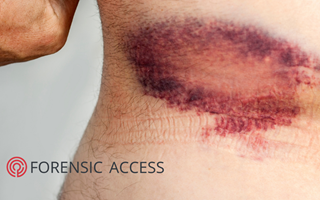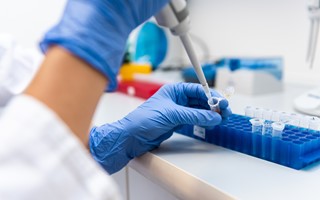Interviews May 29, 2020 3m
Here’s an introduction and interview with one of our Forensic Pathologists, Dr Stuart Hamilton, who you might know from TV shows such as 'Britain's Most Evil Killers', and 'Murder, Mystery and My Family'. He was also the series advisor for ‘Silent Witness’ in 2013. We asked Stuart a few questions about the work he does at Forensic Access.
Stuart Hamilton is a Home Office Registered Forensic Pathologist. He completed his undergraduate medical qualification in Dundee and realised that clinical medicine was not for him, so quickly moved into histopathology before completing his training in forensic pathology.
Stuart has been on the Home Office Register for 12 years. He performs autopsies in cases of suspicious death and provides expert opinion on the nature and causation of injuries, both in the living and the dead. As such, he spends a considerable amount of time providing expert testimony in various courts. He has performed around 3000 autopsies ranging from simple sudden and unexpected deaths to complex multiple homicides.
In his spare time he enjoys reading and the sort of music that, in his own words, reminds most people of roadworks.
What is a typical day for you?
Contrary to most perceptions of my work, the amount of time I spend up to my elbows in someone is relatively limited [!]. Most of my time is spent in front of a computer, producing reports and reviewing statements or photographs. My job isn’t mainly about dissecting bodies, it’s about interpreting injuries, patterns of injury and underlying disease to form a robust answer to how someone came by harm or died.
Can you give an example of an interesting case you have worked on?
I think the most high-profile piece of work I’ve done was reviewing photographs allegedly smuggled out of a warzone which allegedly showed mass executions. I was expecting it to be a couple of days work which ultimately gave no meaningful answers. Instead I was away for ten days and ended up presenting my findings to the UN Security Council. Not a day I’ll forget!
What is one thing you would like people working in defence law to know about your sector?
The forensic pathologist is an expert in mechanism and causation of injuries, so we can comment on injuries in the living as well as the dead and is experienced and trained in the rules of expert evidence and giving evidence. If the prosecution’s “expert” report is a proforma medical statement from a junior doctor saying “the injury is consistent with the mechanism described” it’s not really an expert report and needs scrutiny.
What is the weirdest thing you have worked on?
The human body has orifices and people are people… so we regularly make surprising discoveries, but unfortunately describing them would make this article fall foul of the Obscene Publications Act! Two comments – cheesecake and baseball bat. I leave the rest to your imagination.
What are the common misconceptions that people have about the work you do?
The idea that we’re only relevant to the dead. Also, as every forensic expert will say, our portrayal in drama! I was once asked at a literary event how often I chased a criminal or got handcuffed to a radiator. My reply was that one only needs to look at me to see how often I run anywhere, and what I do in the privacy of my own home is nobody else’s business!
Thank you Dr Stuart with that very… erm… ‘enlightening’ interview. Stay tuned for more short interviews with our Forensic Scientists.
To find out more about our forensic Pathology services offered by Forensic Access fill-in our online contact form or Tel: 01235 774870 to speak with our team.


